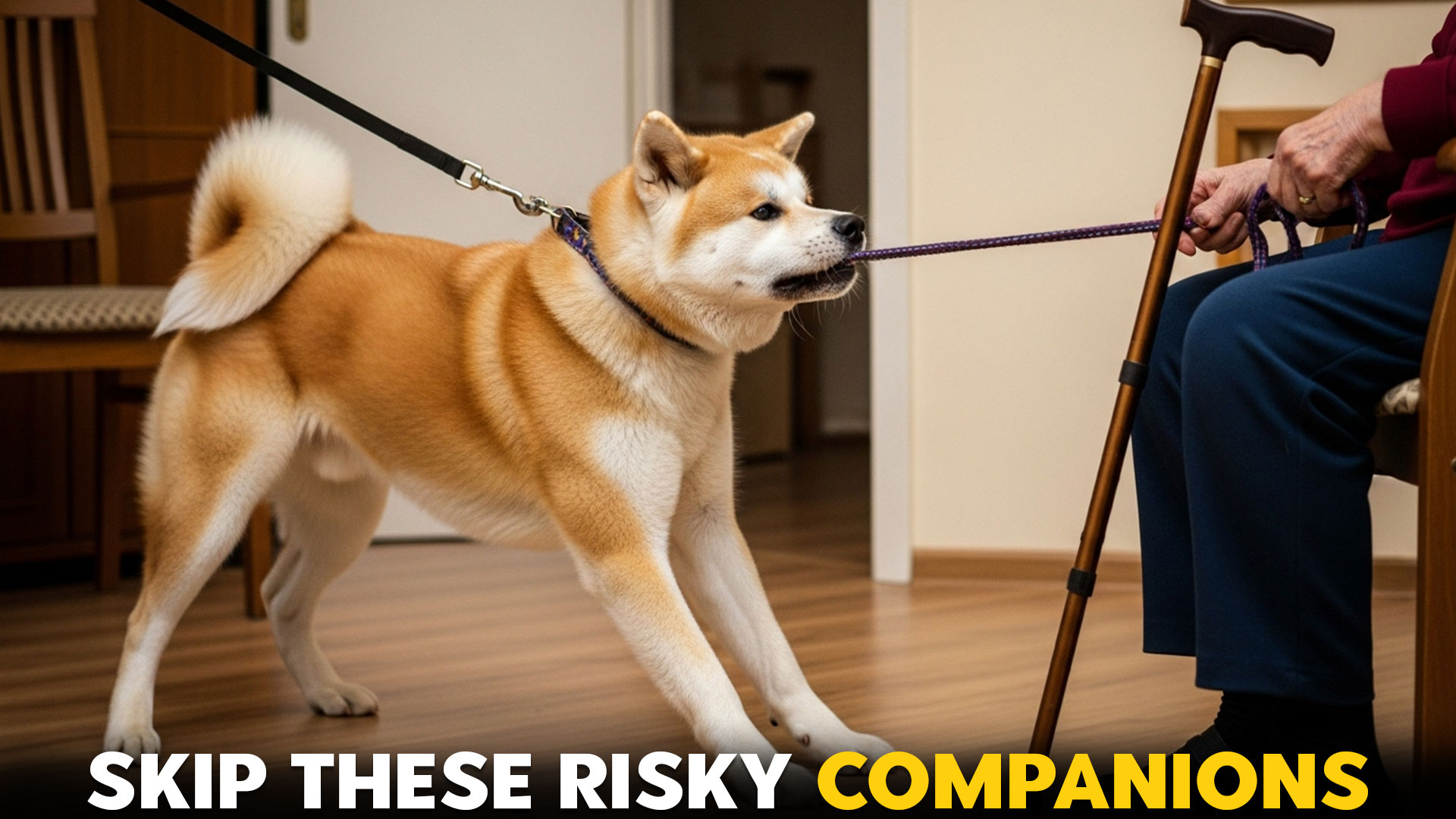Imagine your elderly uncle or aunt with their creaky joints, just entering your lounge, when your over-excited mutt jumps over them. No matter how much the older person loves the dog, an energetic or aggressive pet can pose some risks to an aging individual, especially if they have health issues.
If you have an elderly relative or parents who visit you often, you want your dog to be a gentle, welcoming presence to them, not a hazard you have to watch for the whole time.
What makes a doggo good for our aging loved ones? There are things you can consider, like levels of aggression, size, energy, and temperament.
The right dog breed will surely make your mom or dad, or favorite old relative, happy, and make them see how much you care for them. If you want to avoid dogs that aren’t the right fit for senior citizens, here are 11 different dog breeds you should keep at bay.
Ultimate Dog Breeds to Avoid If You Have Elderly Relatives
1. Akita
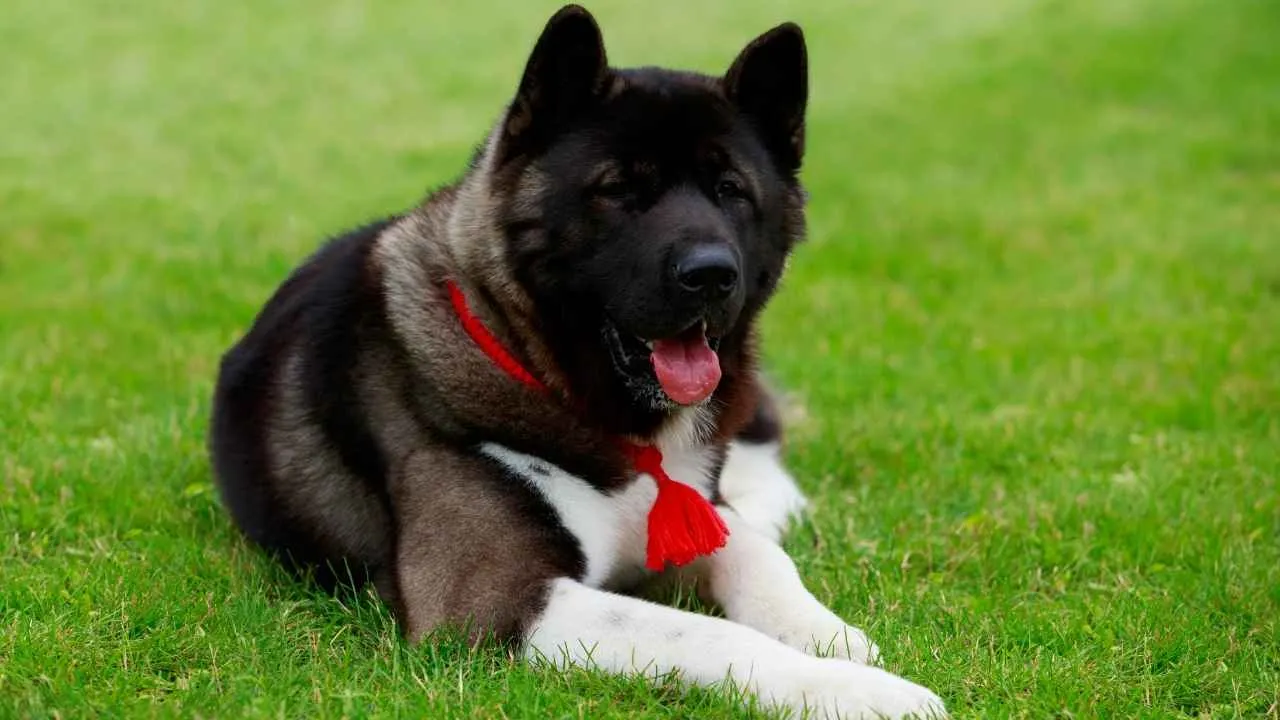
Akita is a dog breed with a famous story of loyalty associated with it; Hachiko was a famous Japanese Akita who waited for his deceased owner at the train station for years until he died.
It’s easy to be tempted to keep this fluffy dog around with its appealing look and energetic temperament, but is it a safe option if you often have an elderly person around?
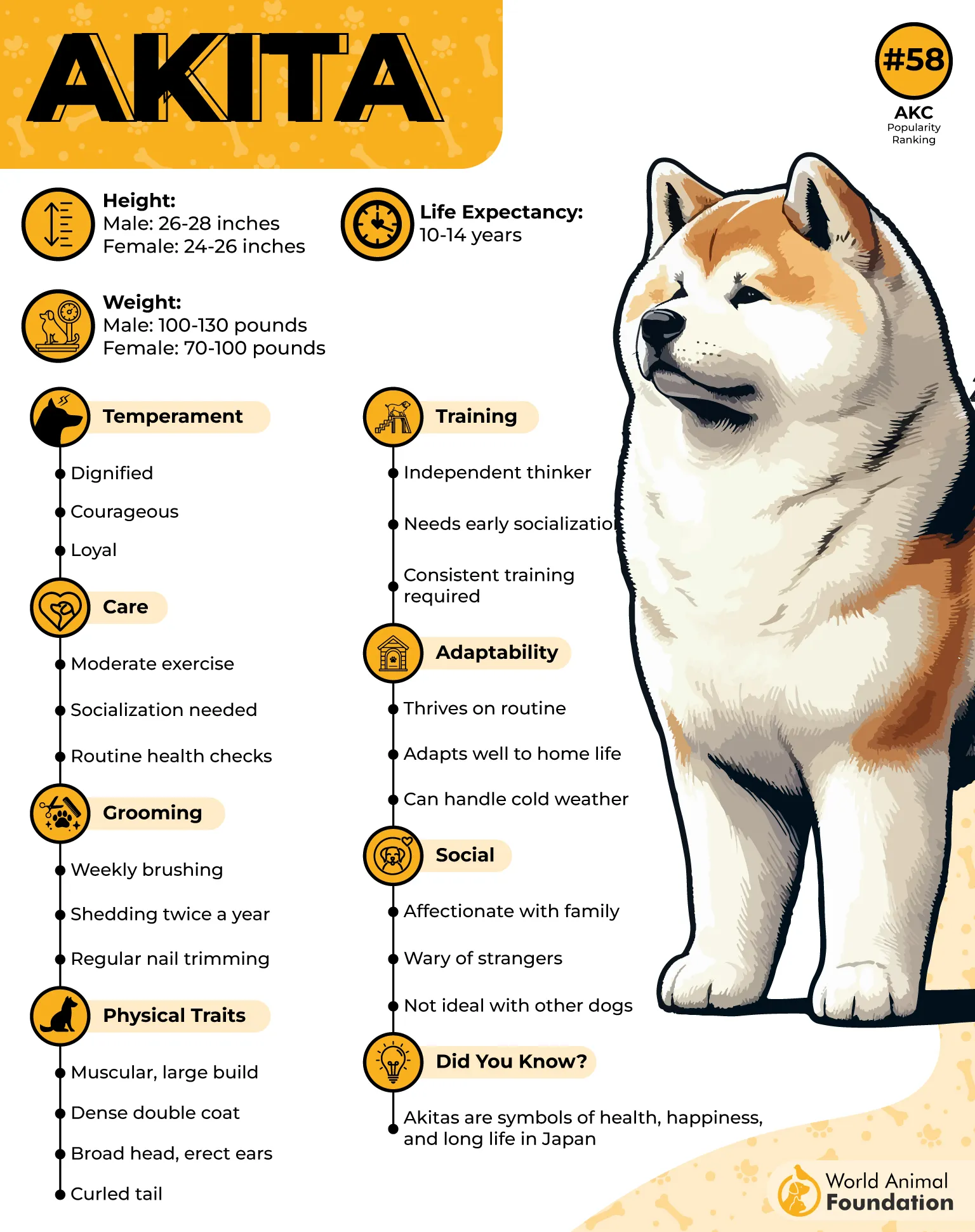
Akita does not come from an origin of velvety cushions and silk bed covers; they were originally used as hunting dogs as well as fighters. They made their way into the police force in Japan and were also seen as reliable guard dogs.
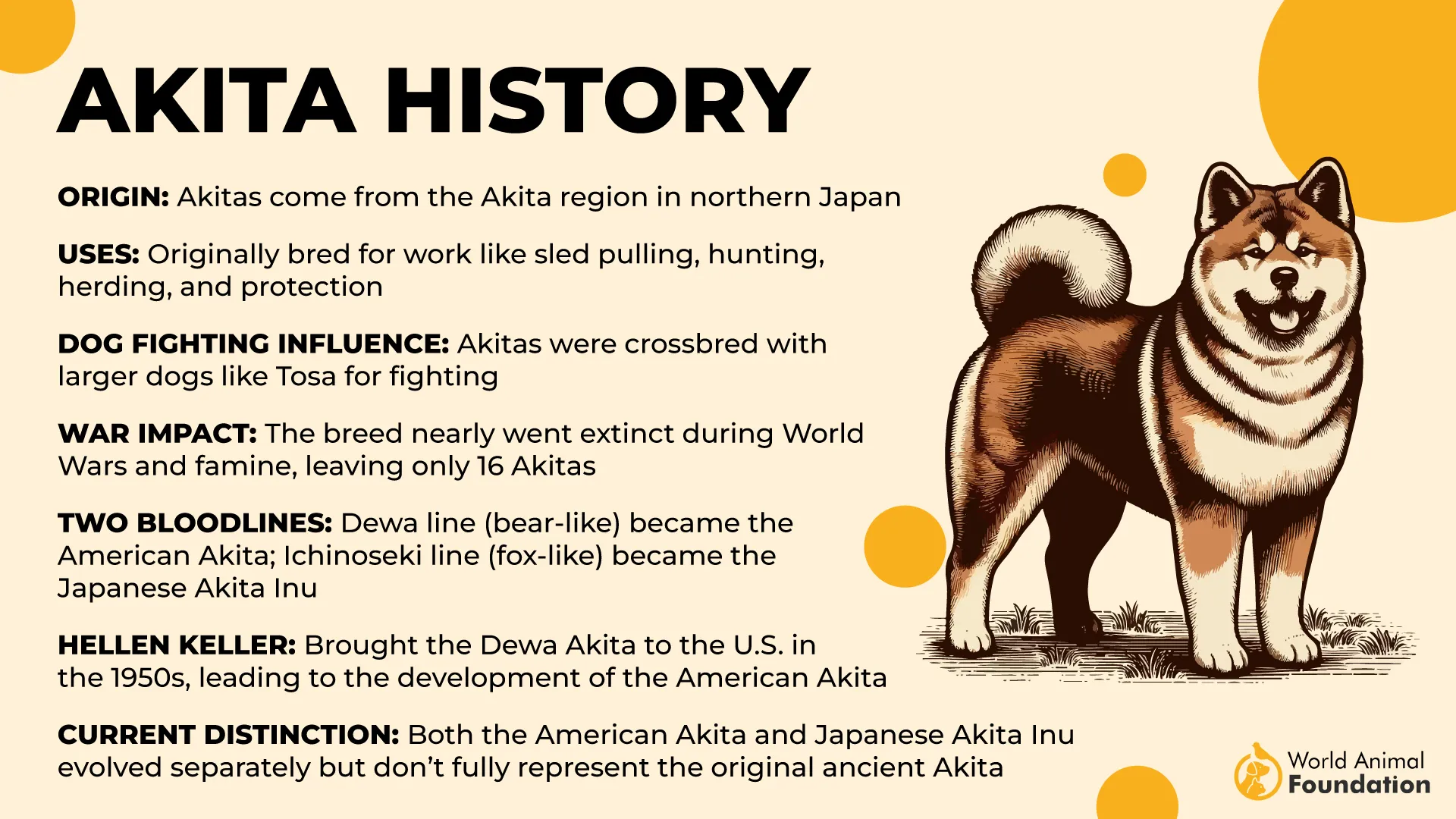
Now, they’re robust companions for active owners who can keep up with their exercise and grooming needs. Though they make nice family pets, as aloof, stubborn, and strong canines, they might not be a cake walk for elderly people.
2. Cane Corso
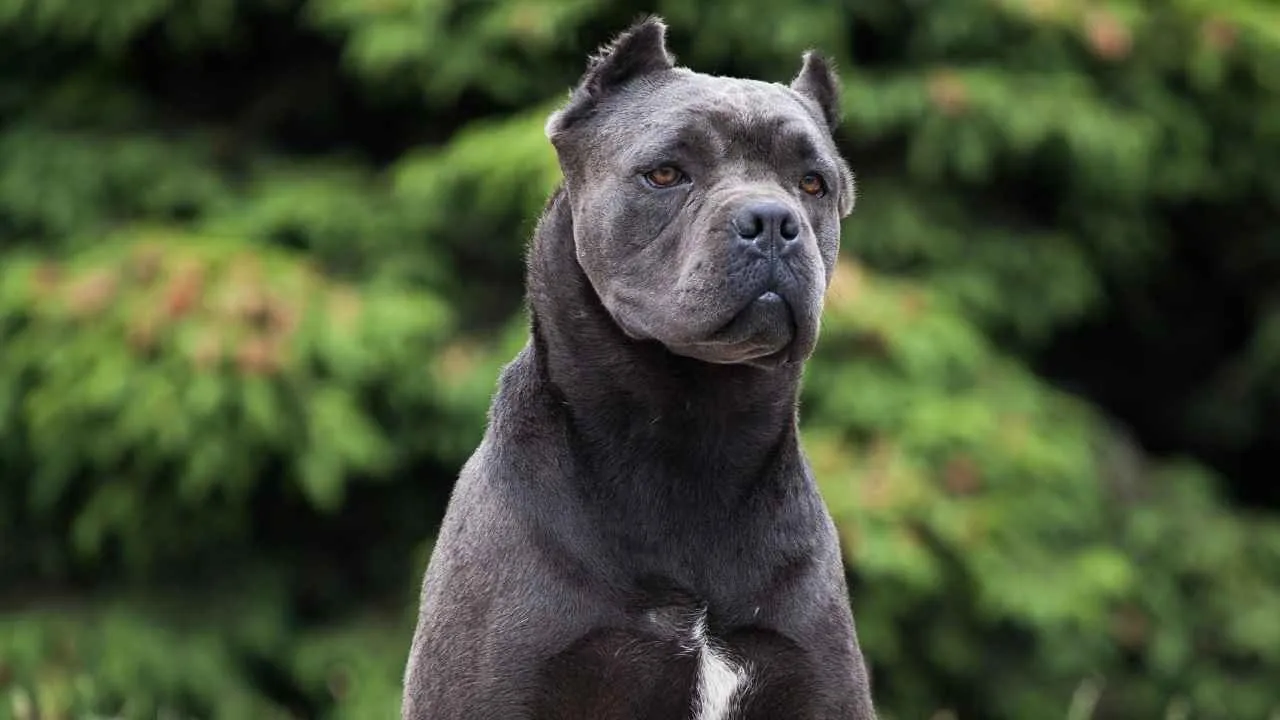
Whether it’s scaring away invaders with its intimidating appearance or sniffing out an unusual presence, the Cane Corso is a protective dog hard to compete with. With its sturdy stature and serious appearance, it gives a professional bodyguard vibe rather than a calm presence as you have your evening tea.
When it comes to letting it unsupervised around your Pops, some facts need to be considered. They might be one of the worst dog breeds around elderly people who are too old or weak to handle their energy level and strength.
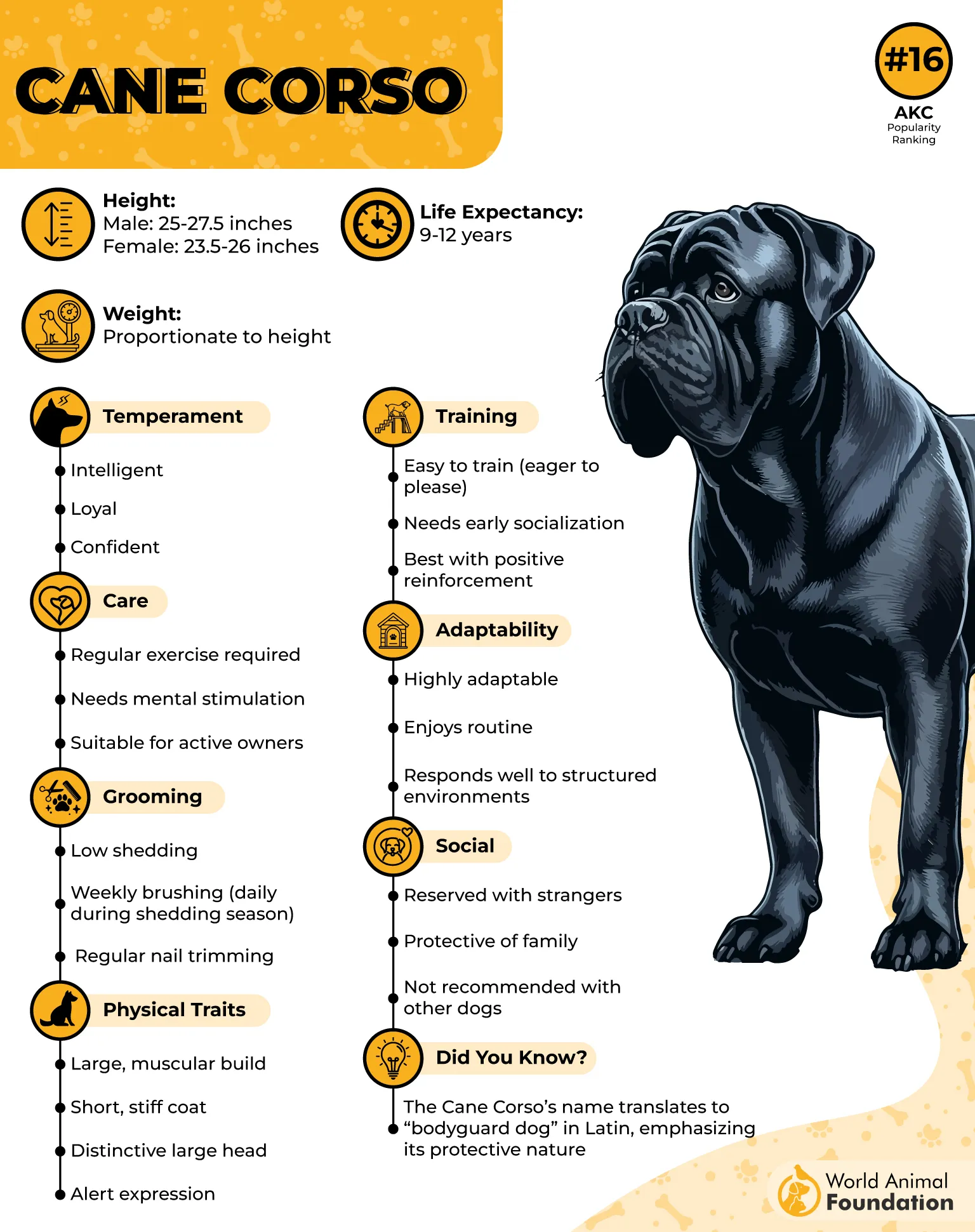
AKC mentions that the Cane Corso can be traced back to ancient Romans; we can only imagine the adventurous history it has left behind. They are not all fierce, though. Corsos can be quite loyal and love to please their pet owners.
These dogs require experienced handling, firm training, and plenty of exercise, which may pose risks or challenges for seniors who prefer a calmer, more manageable companion.
3. Alaskan Malamute
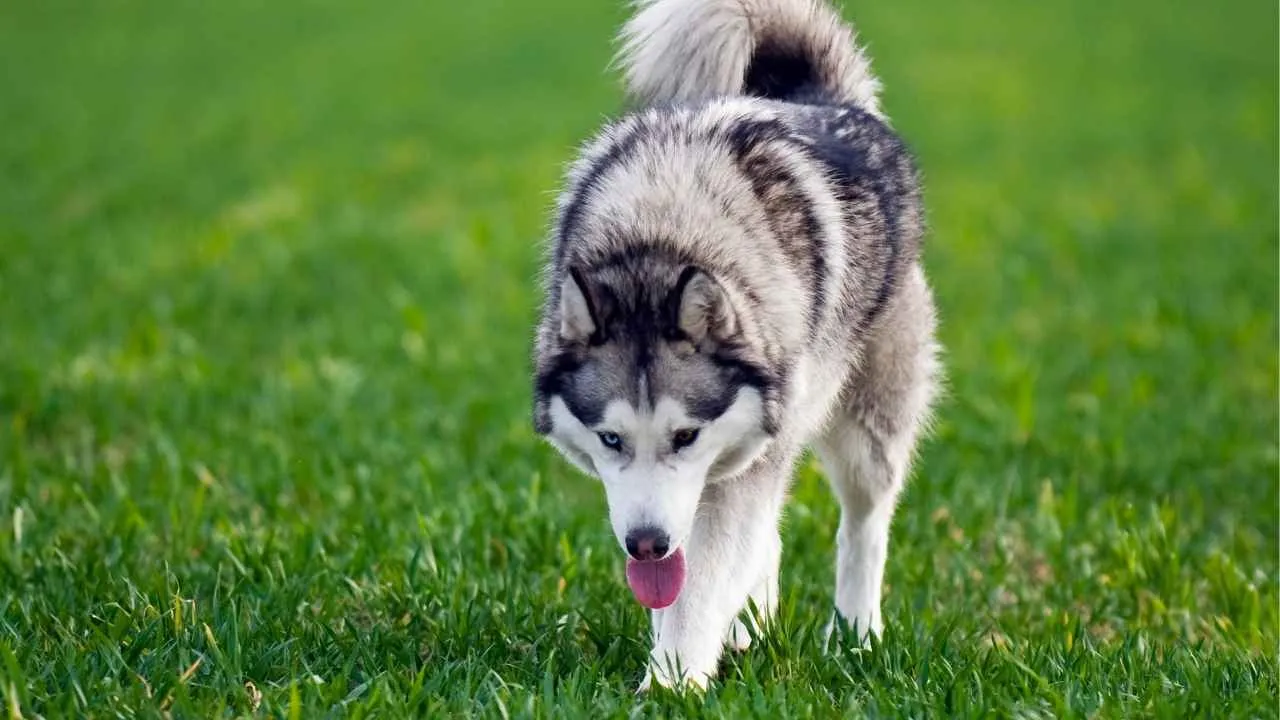
Alaskan Malamutes have spent ages as beloved sled-dogs of the Mahlemut tribe in Alaska and have demonstrated their loyalty and resilience. They are no strangers to thriving in packs and working close to humans, and are still seen as great companions for experienced pet owners.
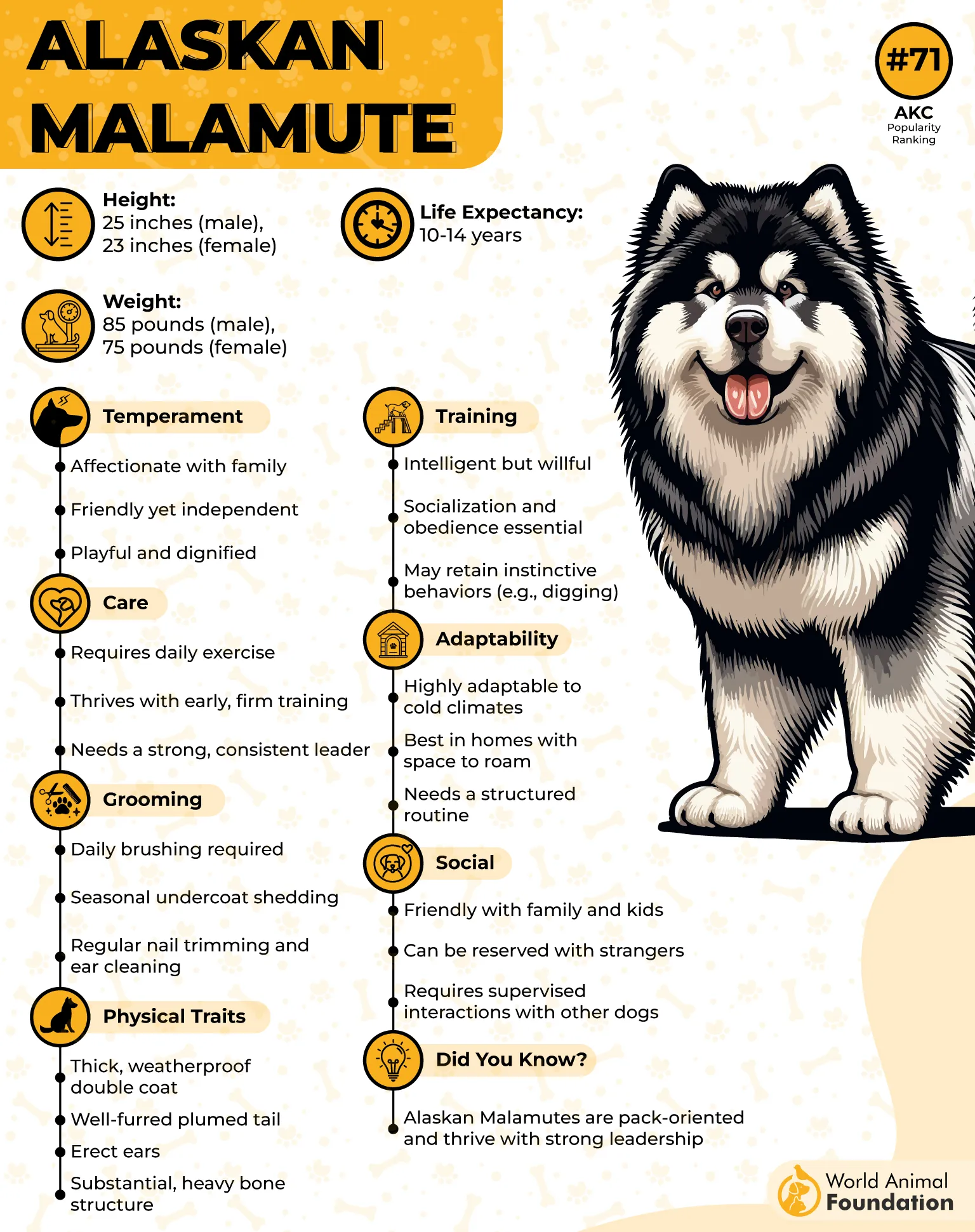
These family-centered doggos do enjoy the attention of their humans and generally get along well with other dogs if they’ve received proper training. But as big and energetic dogs, your elderly uncle or aunt might not see what hit them if they encounter this doggo in one of its over-excited moods.
As large dogs, some caution is required when they’re around small children and seniors who can’t handle a dog this size. WebMD mentions they were also used as guardian dogs, so they are a good choice for you if you can train them and nurture their talents.
4. Weimaraner
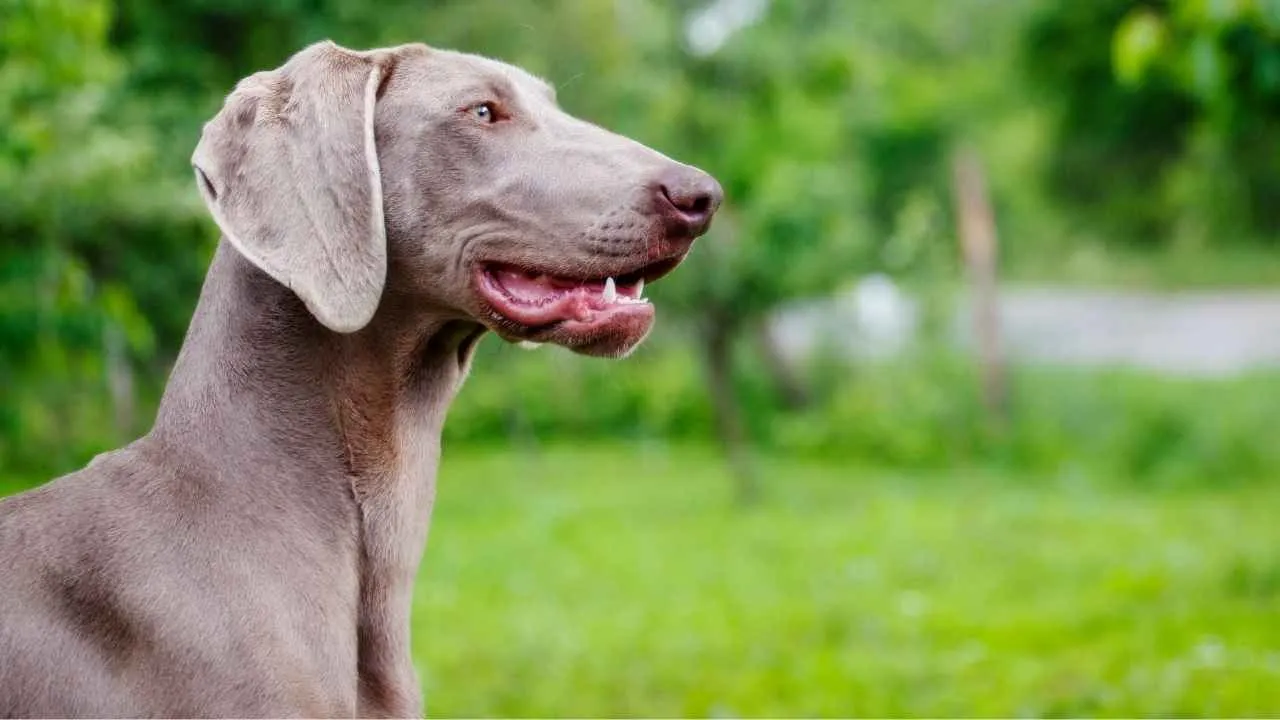
Weimaraners are very active dogs that need human companions who can match their level of energy. They make friendly pups and do great at obedience training, as well as performing well in canine sports due to their trainability.
Weimaraners are really intelligent dogs and love to think for themselves; they require a lot of mental stimulation to stay in good spirits.
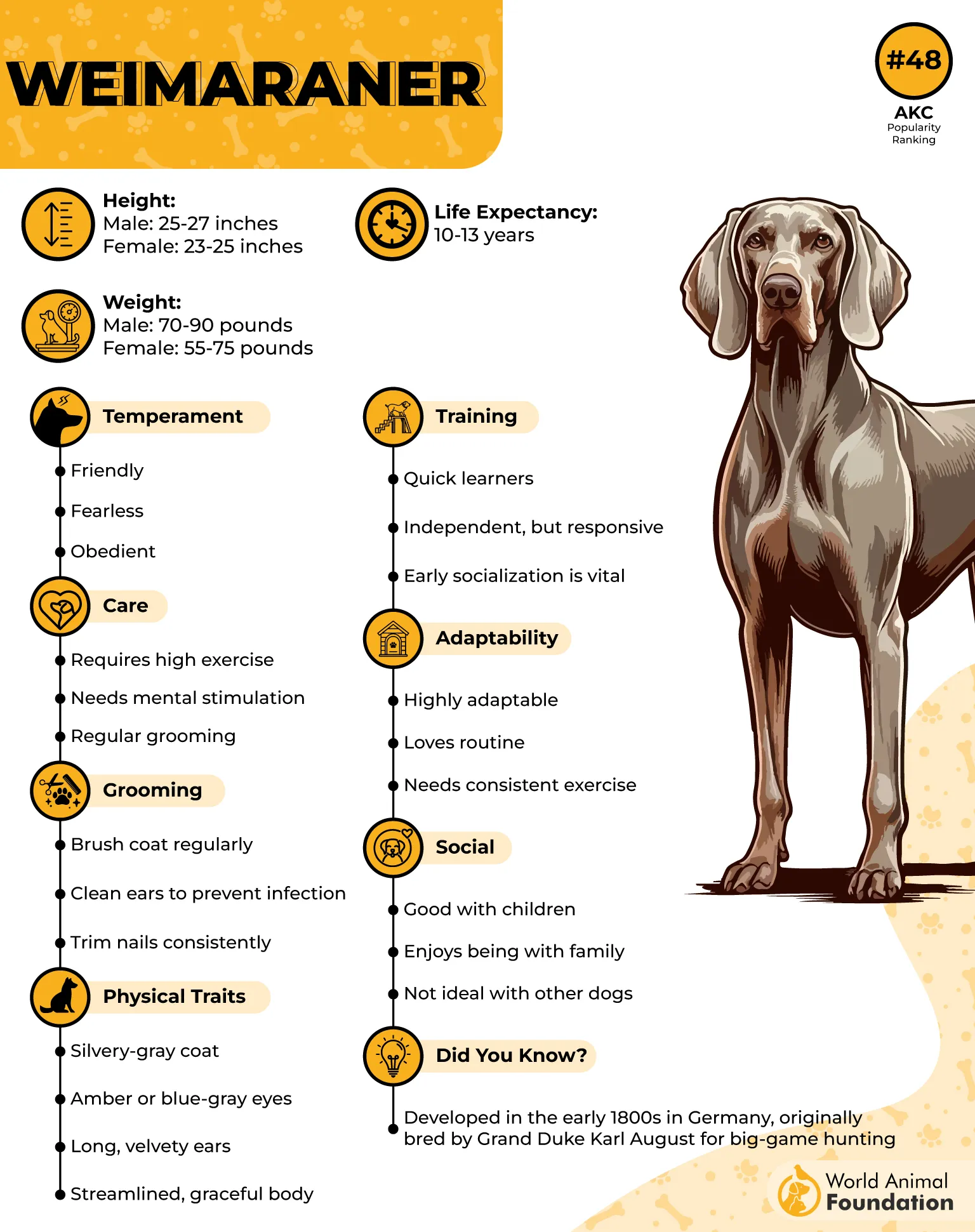
As they were originally bred as hunting dogs, Weimaraners might not be the best members in a family with other pets, especially small dogs and cats.
PetMD warns that these mutts are prone to behaviors like digging and chewing (better ensure your furniture) if they are bored.
Their need for constant activity is what hints at them not being the best dog breeds for senior citizens, as this companionship will have a lot of energy gap.
5. Anatolian Shepherd Dog
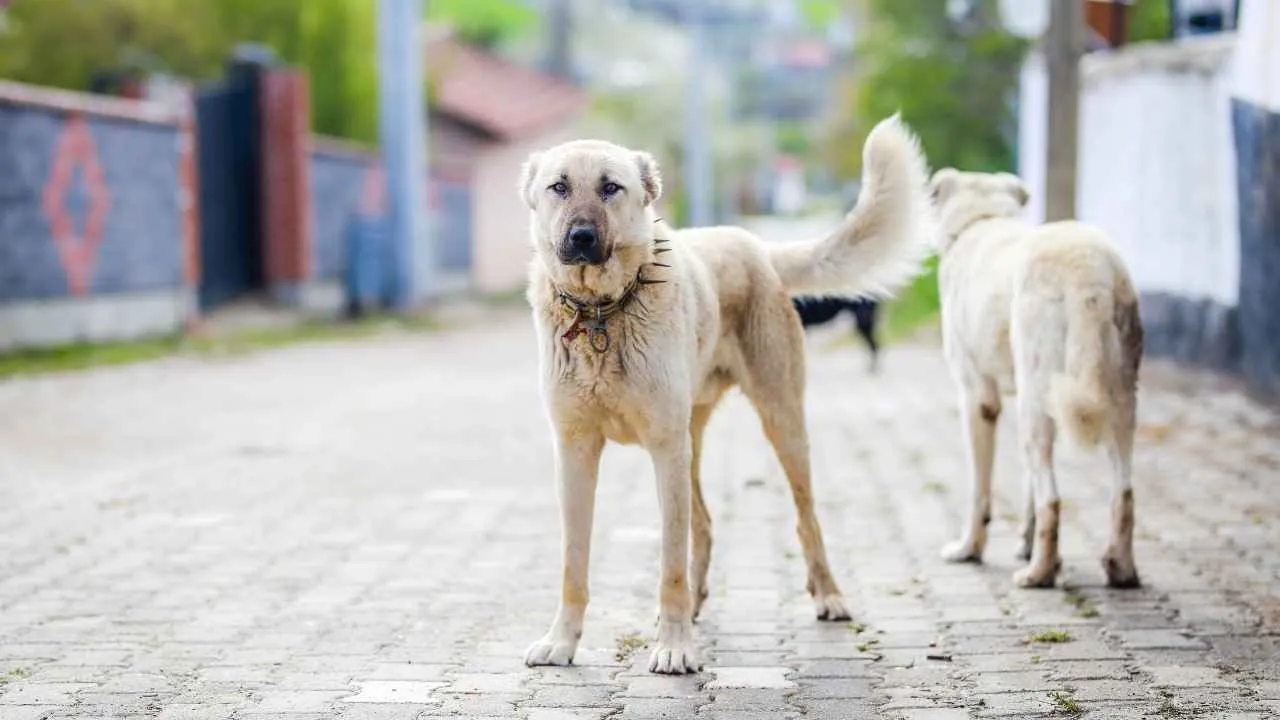
Anatolian Shepherd dog is a large dog breed hailing from the Turkish region, it was named after and was used to herd livestock.
These strong-headed and independent dogs are anything but mild-mannered. They’d rather be seen as partners in crimes than sidekicks, as they have been doing their jobs of protecting cattle and sheep on their own.
These high-energy dogs not only need early socialization training, but also require ample space to stretch their legs and burn off their energy.
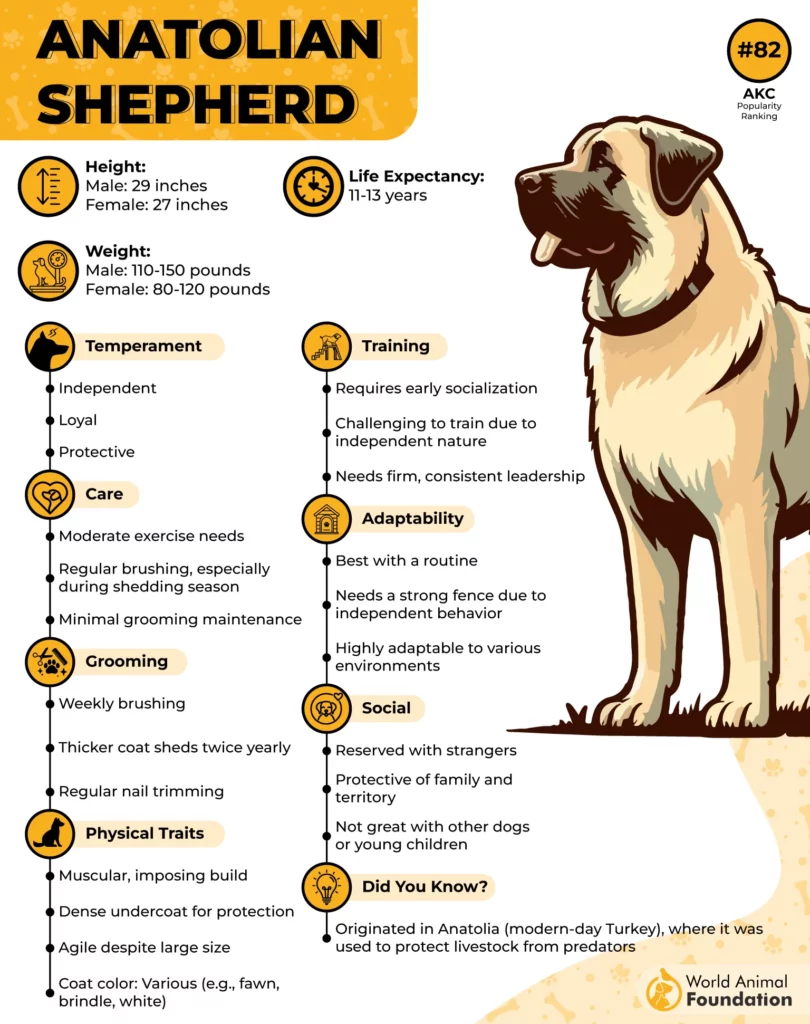
They’re not the best companions for elderly owners. For one thing, despite being aloof and independent, they can exhibit territorial behavior, which can be a lot to manage at times.
Additionally, they’re quite the barkers; though they do bark to alert their owners of danger. Still, a noisy dog can be disturbing to elderly owners, especially when they’re trying to take a snooze.
6. Doberman Pinscher
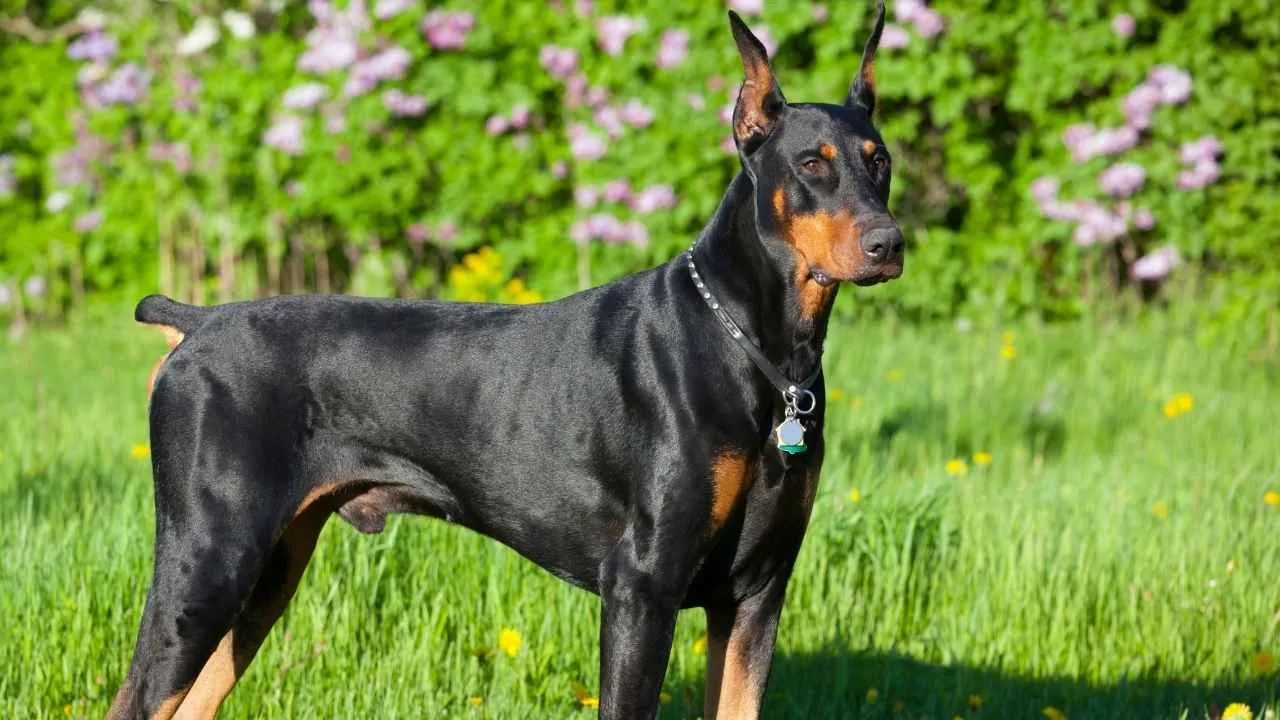
Though Doberman Pinschers are powerful protectors and fiercely loyal doggos, they aren’t the easiest pets to handle for older people.
Dobies were bred by a German tax collector as his personal guards, and they’re still great at this job, as well as police and military work. It takes an experienced as well as energetic owner to handle these highly trainable but powerful mutts.
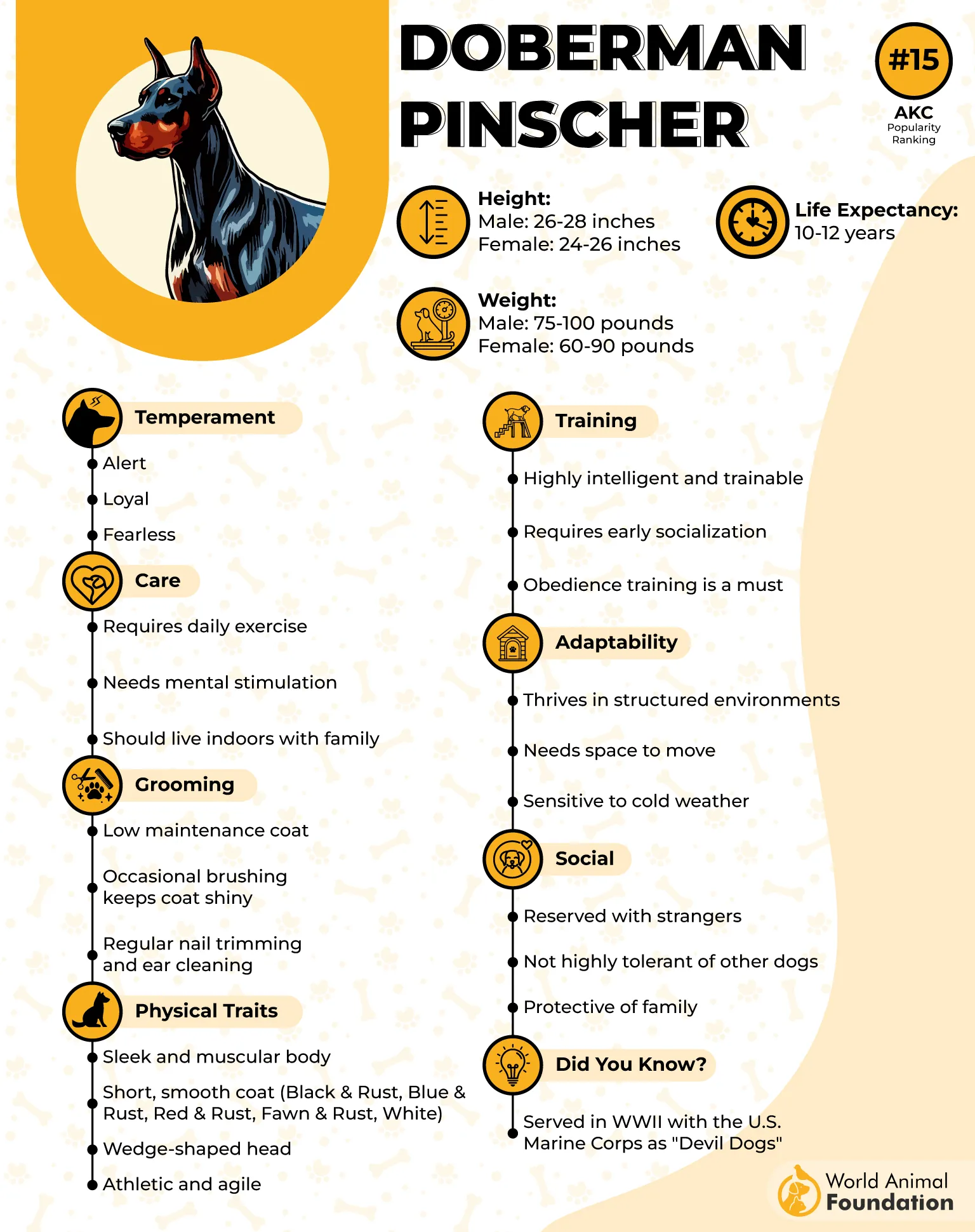
Dobies are smart dogs and learn complex tasks with ease, but they are also full of energy that needs to be channeled. They not only enjoy swimming and playing fetch, but Dobies tend to be pretty good at jumping. This is exactly a tendency that makes them not the best pets for senior citizens.
7. Sloughi
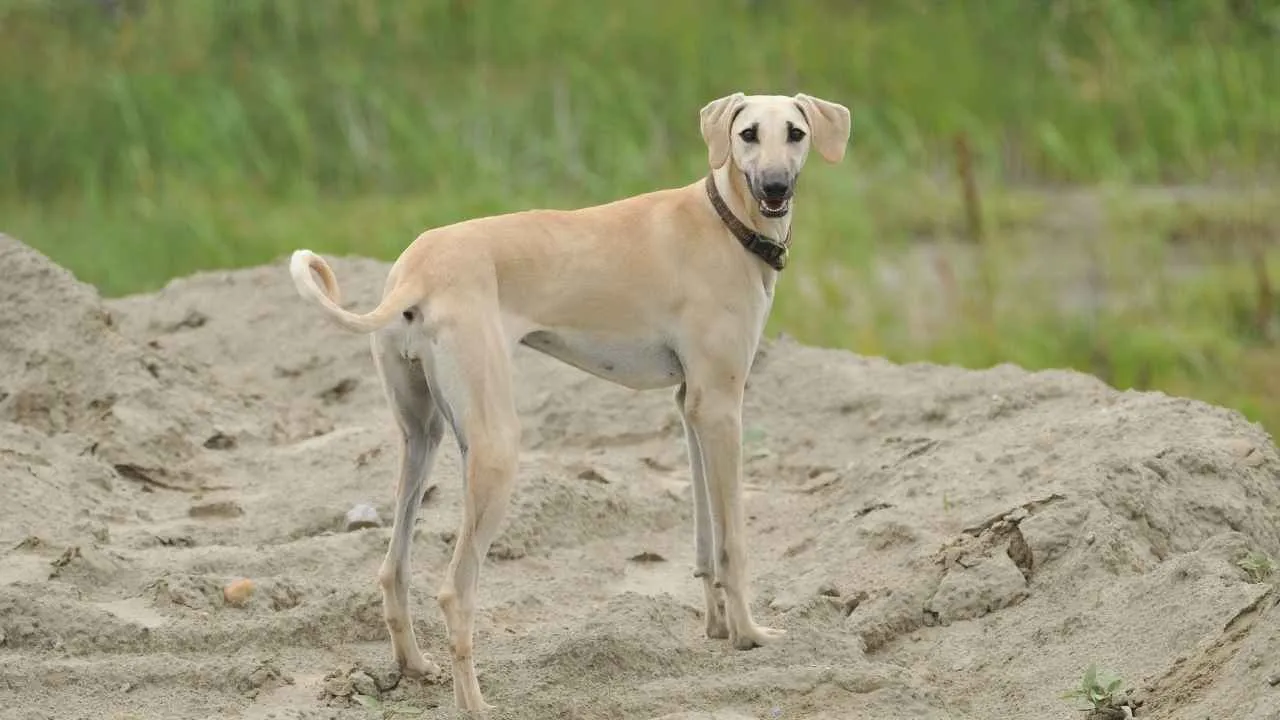
Sloughis are unique hound dogs with a sleek but athletic build and long legs. These fascinating dogs are quite rare in the USA, and their origins can be traced all the way to North Africa.
Though Sloughi owners would say they’re quite loving in nature, these pups tend to be aloof and bond deeply with one special person. They can be excellent companions if you have the time and energy to properly train them and give them a lot of daily exercise.
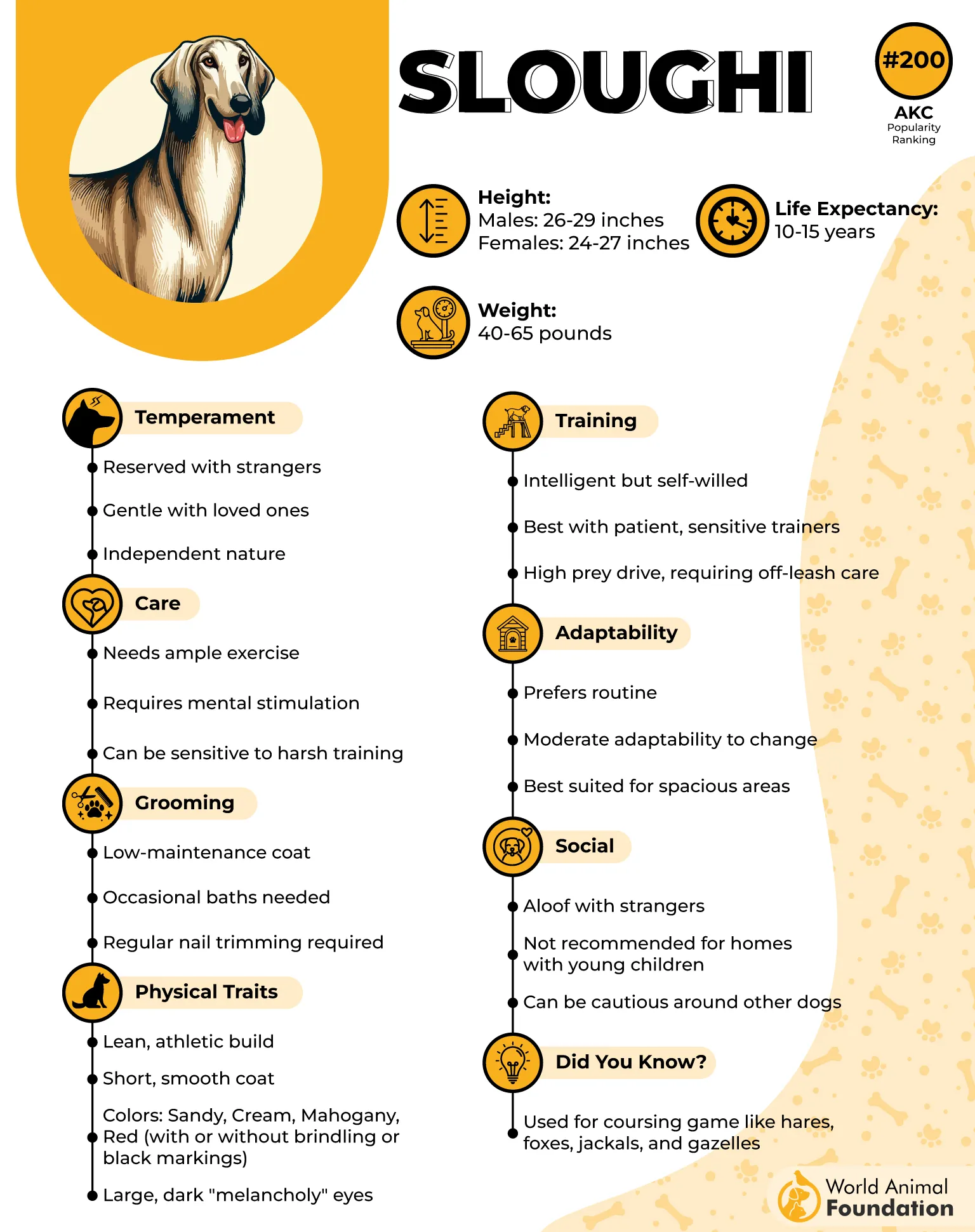
Though many seniors are in a better shape to enjoy the company of active dogs, some might struggle with pups of high energy levels. Sloughi is a doggo that can exhibit a cat-like personality; they live in their own world and aren’t always the cuddliest pets.
8. Bullmastiff
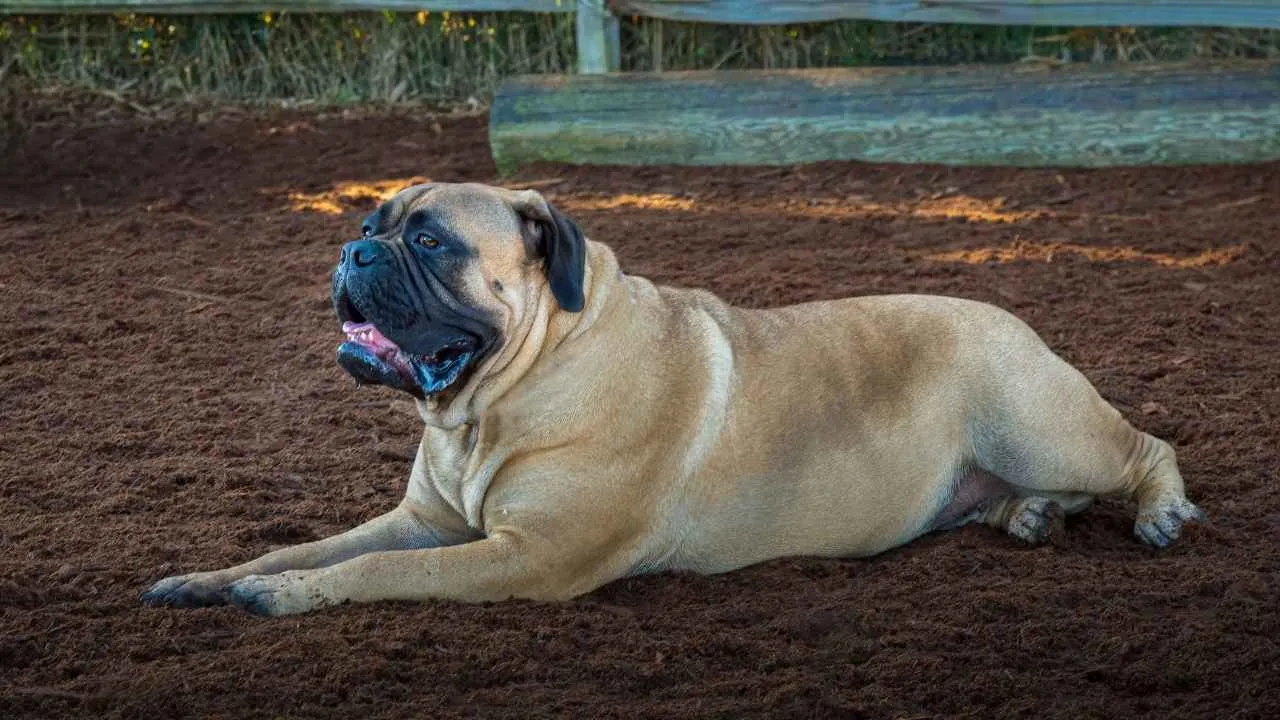
Bullmastiff is… as you can guess… a crossbreed between Mastiffs and Bulldogs, and it shows. These dogs have an impressive, muscular build and a serious flat face with a black mask. They can switch personalities between quiet and composed to alert and protective canines, depending on the vibes and situation.
What makes Bullmastiffs sometimes a bad choice for households with older people isn’t that they’re too aggressive. There are different factors that can make them a challenging company for an older person. For one thing, they crave human attention, and if they don’t receive it, they can become quite destructive.
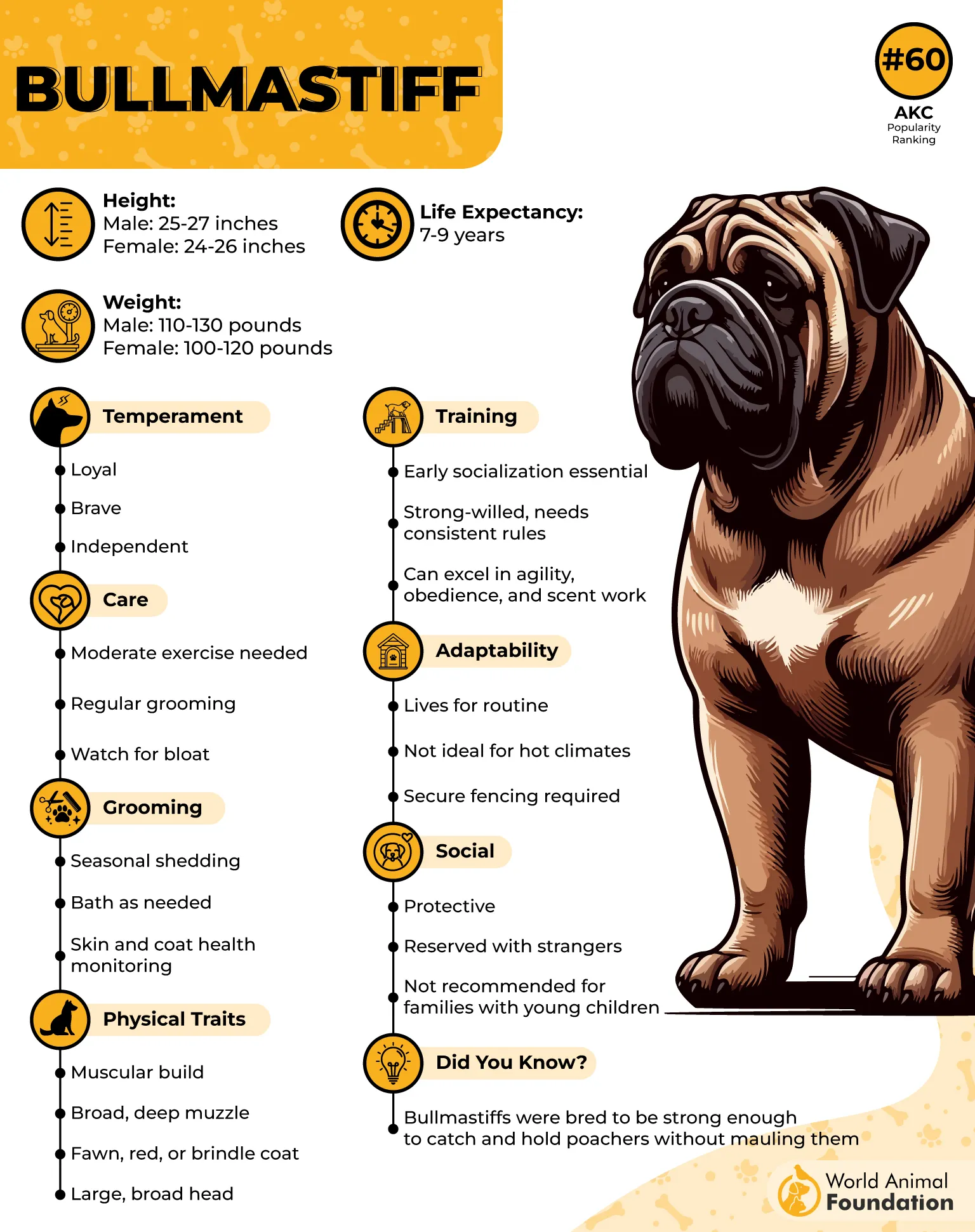
Another factor is their power; they can be quite demonstrative and might knock off anyone with less muscle power, like children and seniors.
9. Afghan Hound
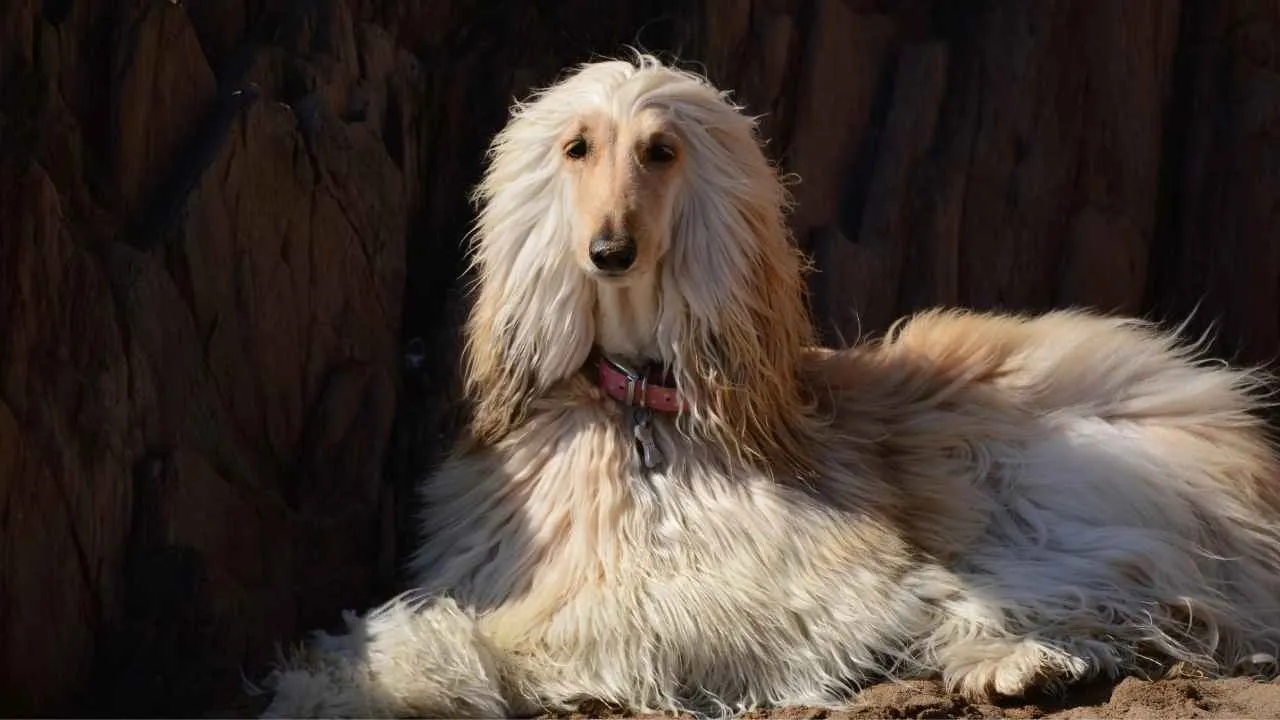
Nothing says diva more than a dog with long, silky tresses and a charming but confident personality. Afghan Hounds are called Tazi in their region of origin (Afghanistan) and are distinct not only for their looks but also for their clownish and sweet personality.
The company of these pups can be desired by many, but their need for a robust daily routine can make older individuals feel overwhelmed. Their strong prey drive requires that they get at least two hours of exercise; they’re also quite fond of swimming.
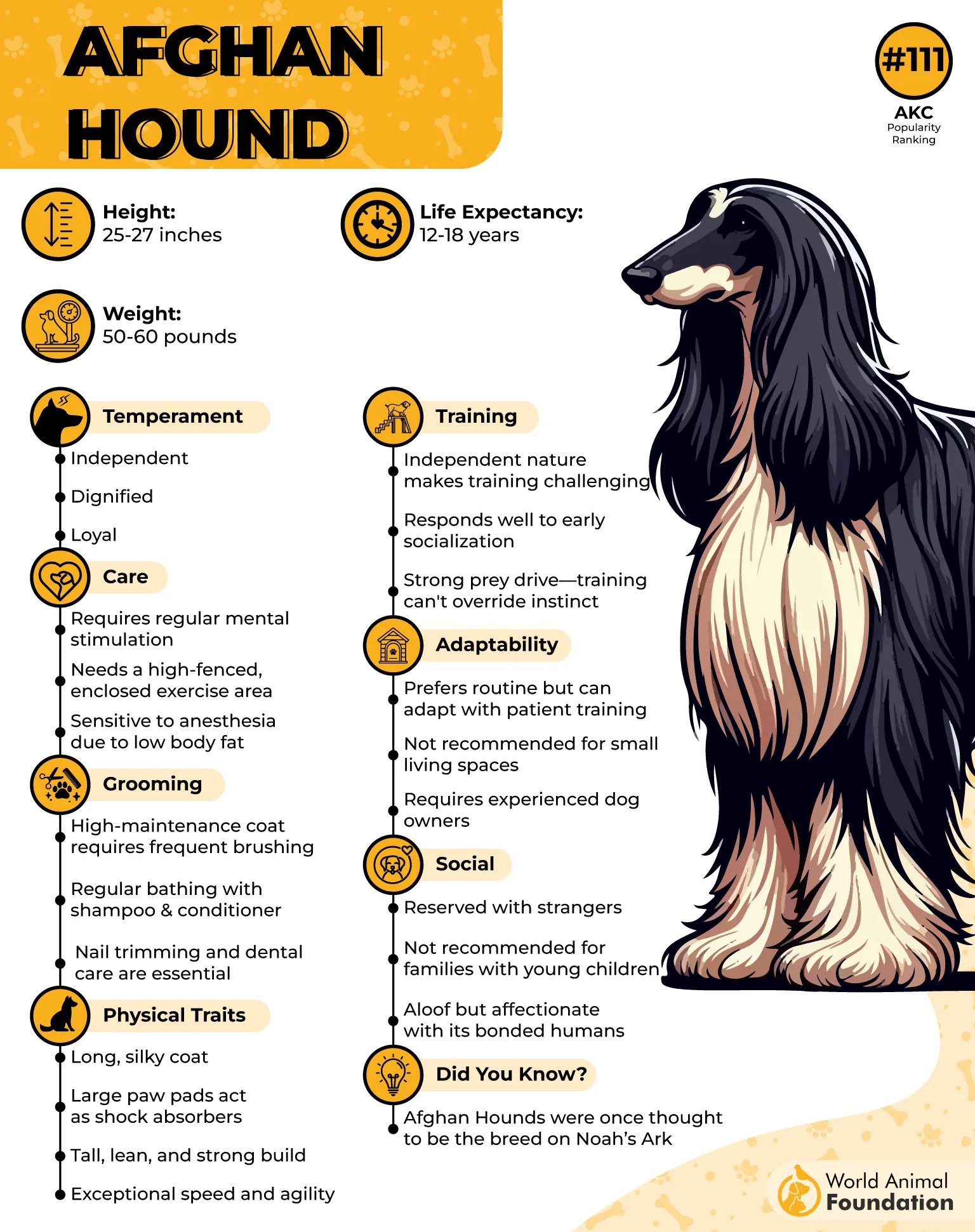
So, unless your dad is on a lot of vitamins, he might not be the best pet parent for these doggos. They also have extensive grooming needs; from regular brushing to bathing, their silky hair needs a lot of upkeep.
It’s better to keep these pups on leash and in a fenced yard; they do adapt to small living spaces, but won’t appreciate being left alone for long.
10. Presa Canario
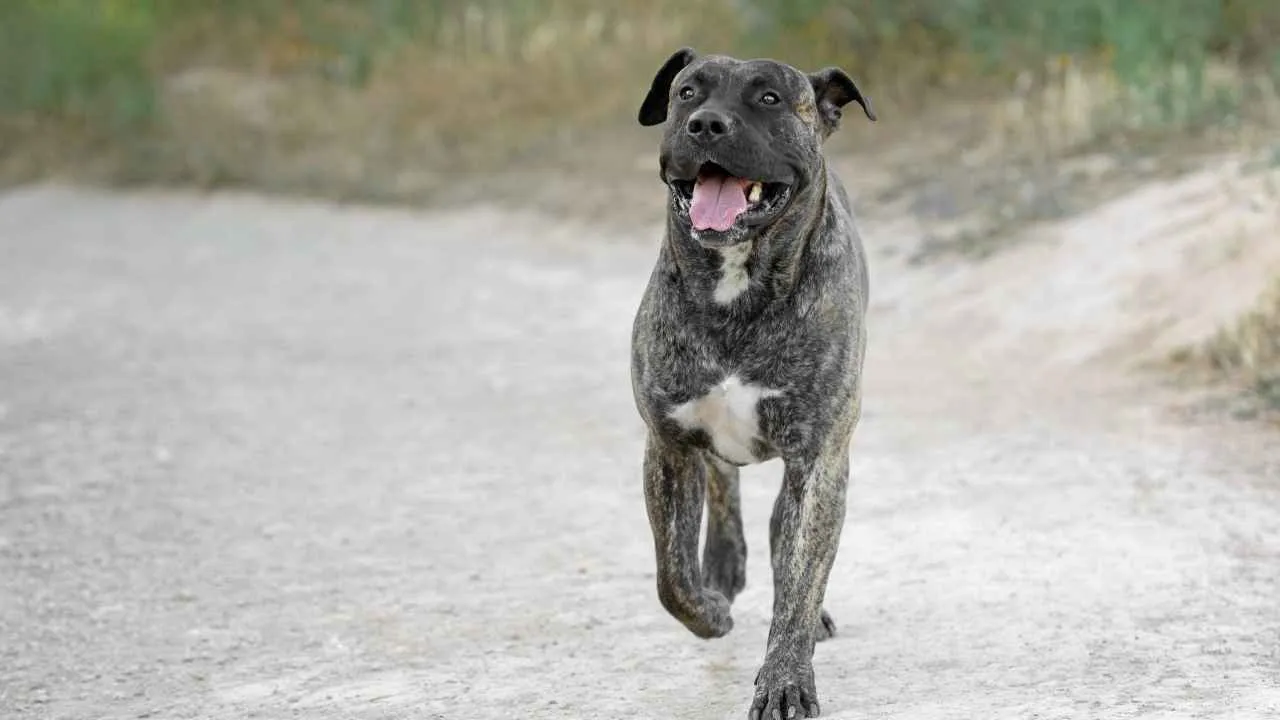
They’re heavy, they’re rowdy, one look at Presa Canario and you’ll understand it’s a dog not for every pet owner. This big dog is an efficient livestock guardian who carries a soft spot for his owner but can’t be bothered with strangers.
These scruffy pups are also called the “Canary dogs or Canary Mastiffs” due to their origin from the Canary Islands. These working dogs have a strong drive to get their job done, and though they make decent companions, they can’t completely shake off their instincts.
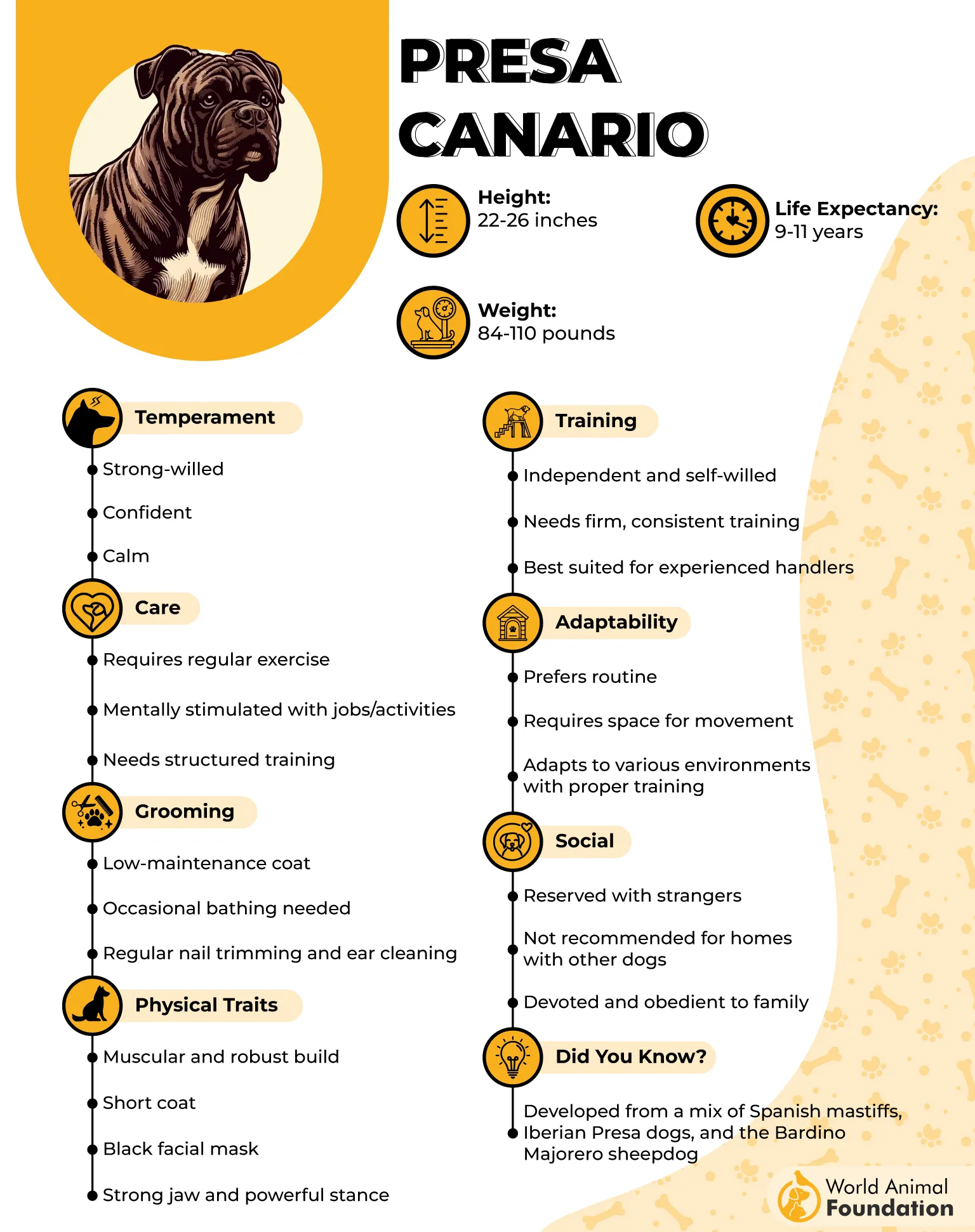
Whether or not they’re the right breed for you can vary with your lifestyle. However, if you have an aging family member at home, they might not be the best fit; the same stands for if you have small kids.
These canines thrive on attention and can become quite demanding; adopt a Presa Canario if you are experienced with dogs but happen to be a one-dog person.
Their rough coat does require grooming, but to a moderate extent. Some weekly brushing and bathing is what keeps them quite free of matting and dirt.
11. Tibetan Mastiff
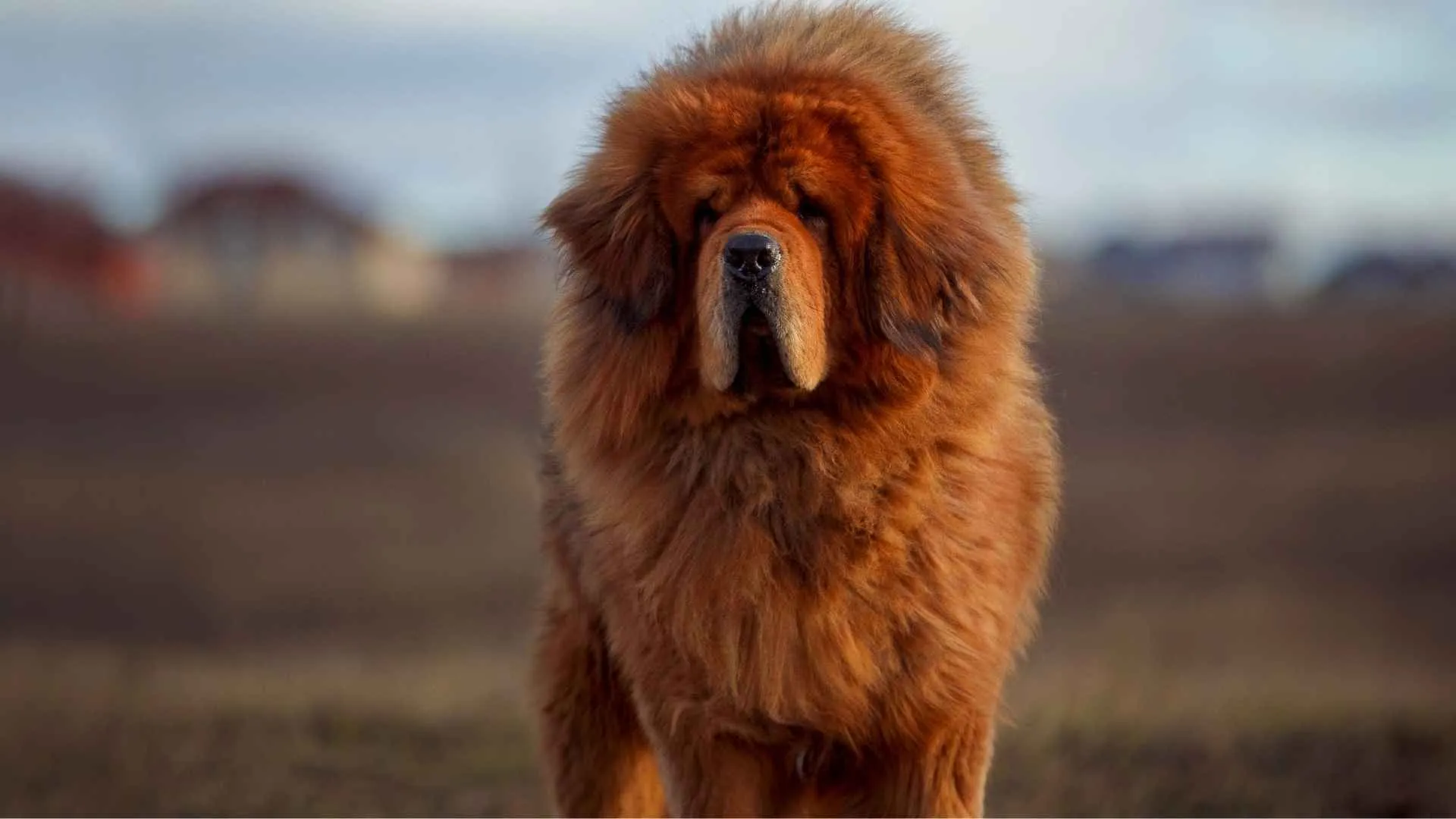
The Tibetan Mastiff is a thick-coated, big dog hailing from Tibet, and looks unique due to its distinct facial features and fur. This majestic dog has helped its owners for ages by protecting their livestock and property.
These dogs are quite aloof in nature due to their protective instincts, yet very loyal towards their owners. They’re still not for inexperienced owners, as training them takes more than just good intentions and wishful thinking.
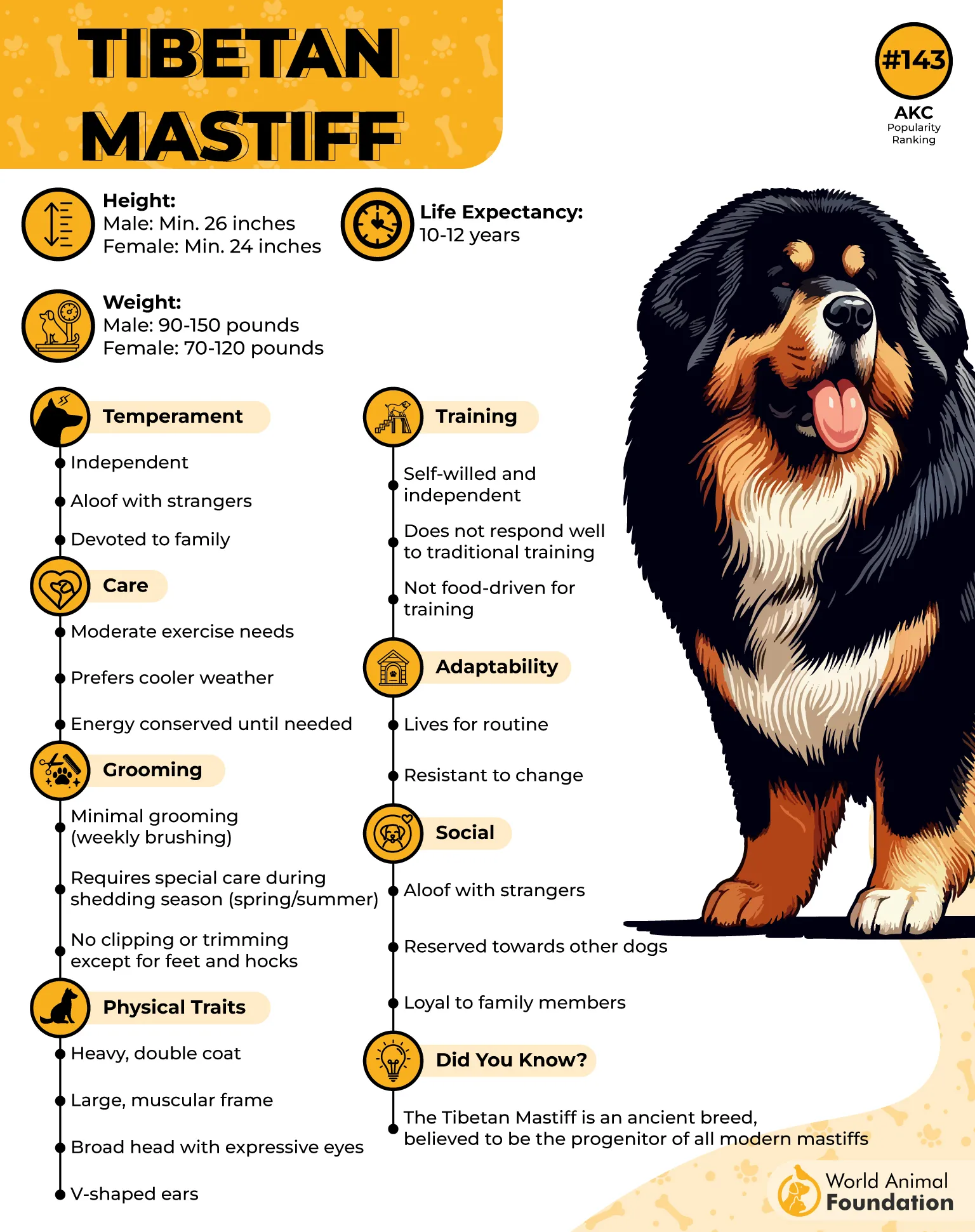
They’re prone to some health problems like hip dysplasia, which means a lot of skill and caution are needed when giving them exercise. They don’t shed year-round, but only seasonally, so other than some brushing, they need the typical dog care protocol, like brushing their teeth and nail trimming.
Though they are quick learners, these intelligent dogs do possess a stubborn streak. They can catch on to new tricks easily if they want to, but it’s important to start obedience training when they’re still puppies.
FAQs
Why should certain dog breeds be avoided around elderly relatives?
Some dog breeds tend to have high energy levels, larger size, a tendency to be territorial, or aggressive. These traits can make them hard to manage for older people. It’s better to avoid such dogs if you have an elderly person at home.
What traits should families look for in senior-friendly dog breeds instead?
Dogs with a calm and quieter nature, moderate energy levels, hypoallergenic coats, and medium to small sizes are better suited for senior citizens.
What are the biggest challenges elderly relatives may face with difficult dog breeds?
Some dogs can be challenging for elderly people if they demand a lot of attention, bark a lot, tend to jump (which can catch the older person off guard), or want a lot of physical activity.
Conclusion
Pet ownership has a lot of health benefits for older people, including promoting a more active lifestyle. However, some dog breeds are not the best companions for your senior relatives if they are stronger and more demanding than your relative can handle.
If you want both your pet and your relatives to have a good time together, make sure your dog’s temperament and traits fit the situation.


